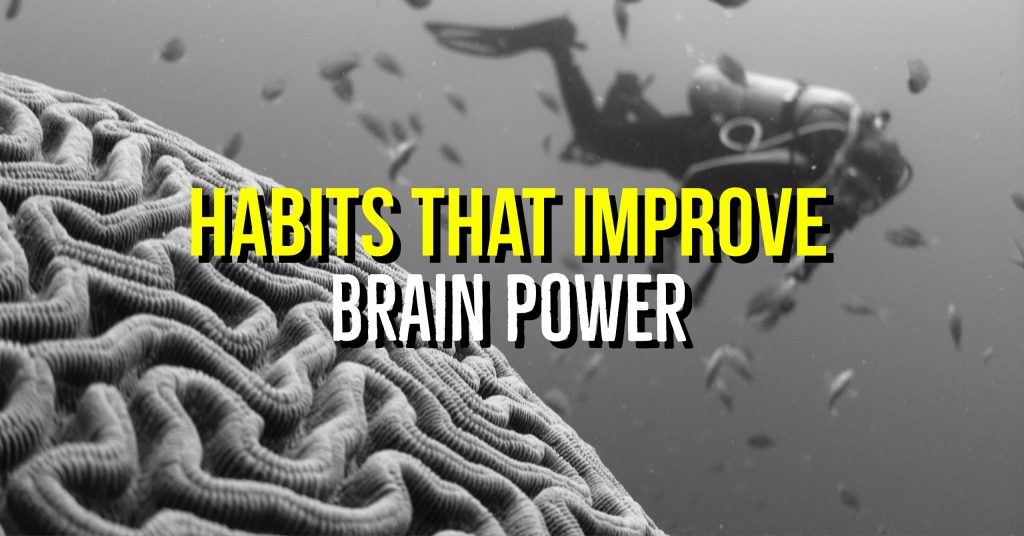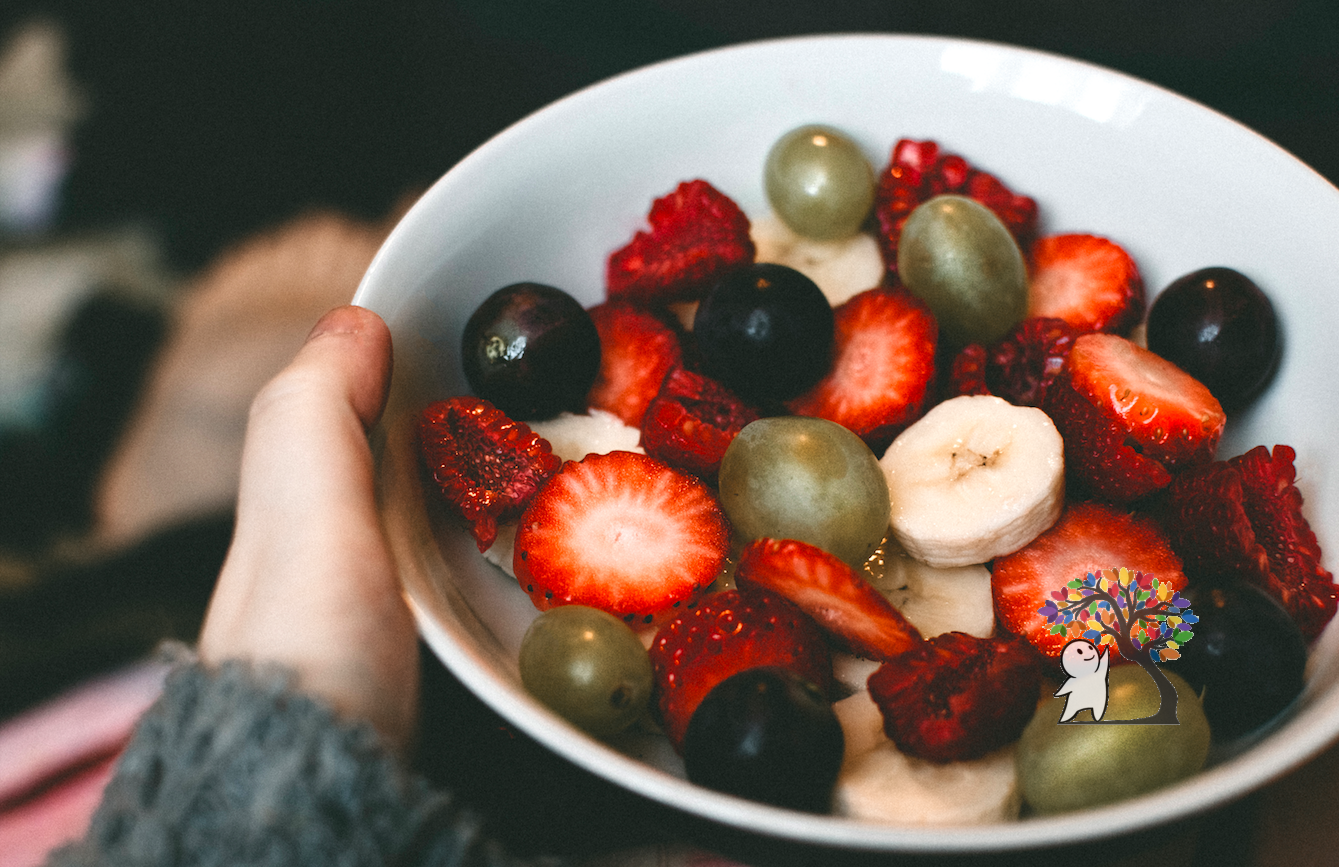7 Habits that Improve Brain Power

“Geniuses don’t have more brain power than the average person, they just use their brains more efficiently”.
I was thrilled when I came across this quote. For years, I believed that geniuses had higher IQs and more brain power than average person and that’s what made them more efficient in what they did. The moment I read this quote, I said to myself, “Wow! If I could learn to how to improve my brain power, then I would be more productive at both work and life”. I always had a tough time multitasking between my writing jobs, home schooling my daughter, helping her with practice, cooking, cleaning, doing the dishes, laundry, etc. (the list goes on). I was not on any kind of social media like Facebook or Twitter or IMs (instant messengers) as I didn’t have the time (nor the interest). I used pat myself for being “old-school”. I couldn’t snatch time for entertainment though at times I wished to watch some good movies. Round the clock I got tangled with one task after the other; sometimes doing two together. Yet I struggled to multi-task and felt bad when I was unable to do all that I had planned for the day. I wished I could improve my brain power to multi-task. I hated to push off tasks for the following day but I found myself physically and mentally exhausted without much options left.
I started reflecting and contemplating where I was going wrong in spite of trying hard to prioritize my tasks and using the best of the time management principles every day. I realized that my multi-tasking was actually draining me down instead of improving my mind power and physical stamina. Interestingly the quote I read led me to read an article which startled me. The text that I read was something like this:
Your Brain Can Multitask: True or False?
A voice inside me said: “TRUE…but only you’re bad at it…Humph!”
But I was surprised to find the text as: FALSE…
What I read got me onto my feet. “What? My brain can’t multitask?” I asked myself. Yes, that’s what the neuroscience research has proved.
“Your Brain Can’t Multitask”
Author John Medina in his book ‘Brain Rules’ states that studies show that people who multitask often end up taking double the time to finish a task and tend to do 50 percent of mistakes (Jordan, 2011). Jordan (2011) suggests that instead of multi-tasking we need to do multi-sense.
He recommends 7 habits to improve brain power. 
1. Instead of Multitasking, Multi-Sense.

When we multitask, we actually slow down and take more time to complete a task at hand. Hence we need to multi-sense. We need to use as many senses as we can and complete each task at a time sequentially and by giving full attention. This way you we could improve our brain power and also become productive at work (Jordan, 2011). According to neuroscience research multitasking hinders our performance at work. People who think that multitasking is great actually aren’t aware that it is a myth. People just believe that they can do more tasks by multitasking simultaneously. On the contrary, research says that our brain is unable to pay full attention consciously to two different tasks at the same time (Jordan, 2011).
So instead of multi-tasking we need to multi-sense. 
2. Eat a Nutritious Diet

Apart from multi-sensing our work Jordan (2011) suggests that we eat a nutritious diet comprising of lots of nutrients such as colorful fruits, vegetables, omega-3 fatty acids and low on carbohydrates and saturated fats.
3. Exercise More

A moderate physical activity 3 times a week can improve brain function in terms of cognitive function and enhanced mood/emotions (Jordan, 2011). 
4. Socialize More!

Jordan recommends that we stay socially active (that is direct engagement with people and not merely on FB) which helps in improving brain and increase in brain neural connections (Jordan, 2011). 
5. A Good Sleep

The most essential ingredient of all to improve brain power is— a good sleep. A good and undisturbed sleep is very important for improving brain performance as a sleep deprived brain has to work harder and would accomplish less. A good sleep reduces both physical and mental stress. Importantly, a short afternoon nap (called the power nap) serves as an energy booster for the brain as per the 2002 Harvard University study (Jordan, 2011). 
6. Challenge Ourselves Mentally

Another important aspect to increase mind power is to challenge ourselves mentally. As per the neuroscience research our brain is constantly evolving by rewiring and making new synaptic connections because of its neuroplasticity. However, there are two choices. Either we can allow our brain to change automatically or we can self-direct it on purpose by giving room for autonomy and to maximize its performance (Jordan, 2011). We can challenge ourselves mentally by learning new things, thinking new thoughts or doing new stuff where we can self-direct our brain’s neuroplasticity (Jordan, 2011). By finding new ways to do our work and balancing life, we would be in the path of self-directed neuroplasticity (Jordan, 2011). 
7. Hold A Positive Attitude Towards Life

Finally, only by holding a positive attitude towards life and by laughing often we can find the true to happiness. As per the neuroscience research a relaxed person with positive attitude handles life stressors better when compared to a tensed person with a bad attitude (Jordan, 2011).

I am all excited about the findings on neuroscience research on improving my brain power and I believe that I would be able to achieve better productivity by following the 7 habits for a powerful brain.
References
Jordan, J. (2011). 7 Habits of Highly Effective Brains. Mindfullychange.com. Retrieved
from: http://mindfullychange.blogspot.in/p/7-habits-of-highly-effective-brains.html
Suggested Reading:



I’m so glad to read this, because I thought there was something wrong with ME for being horrible at multitasking. After reading, it makes perfect sense that a brain being pushed to work twice as hard will only put in half the effort for each task. I’d also like to recommend yoga as one of the weekly physical activities as it’s very helpful for improving focus, even if your thoughts are as rampant as mine.
I have one nitpicky criticism, and that’s to keep the “Habit #1” titles either all bold or all italic. 🙂
I always enjoy reading about methods for brain optimization. I generally don’t make it a point to multi-task. I find myself doing so whenever I have overcomitted and/or procrastinated. All of these actions are habits that I’ve been workin steadily to break.
– I like how you kept each point concise and also how you incorporated images throughout the article. I would suggest that you elaborate a bit on point #2, given that our lives are largely centered around food.
Nice write-up!
This article was very interesting because as a college student, I find myself constantly running out of time and wishing to perform more efficiently. I have heard of some of these things before but never attributed them to improving brain function. For example, it was interesting to learn that eating well and exercising can actually improve brain power and function. Habit #5 is definitely something many people fail to do because everyone is so busy that a good night of sleep is the last thing people worry about. This is why I find it interesting that most students in general will cram the night before an exam. Technically, this will actually make one perform worse. I have a close friend of mine who always, no matter what, will go to sleep at the latest 1am the night before an exam. This friend also makes sure to study over the period of several days and study a little at a time which makes it easier for their brain to absorb the material they are learning. Our teachers always tell us not to cram and despite there being actual science to back it up, barely anyone actually follows this advice.
I really like your writing style! It is personal and easy to read and follow. I also like the way the whole thing was arranged, and personal advice was given. Thank you for the reference too! After following the habits, did they work out for you?
An thought provoking topic to read! I found the habits mentioned to be really interesting to think about. However, from reading the article I also noticed a few grammar mistakes and I would suggest reading it out loud before you submit your work to prevent looking less professional. But on a positive note, I liked seeing the in-text citations used to support the article.
I never would have thought multitasking as a negative aspect for the brain, so it was very intriguing to read that section of the article. It began to make sense to me as to why multi-sense would be a better use of energy than multitasking. But overall, most of the habits were of a surprise to me as I’ve never looked at them as playing a role in brain power before.
This was a nice informative article!
*A thought provoking topic to read
Sounds like bullshit to me.
Wish people would leave psych to the professionals.
And not a single citation?
People’s process and store information differently. Posting advice and bad info about mental health online is irresponsible and dangerous.